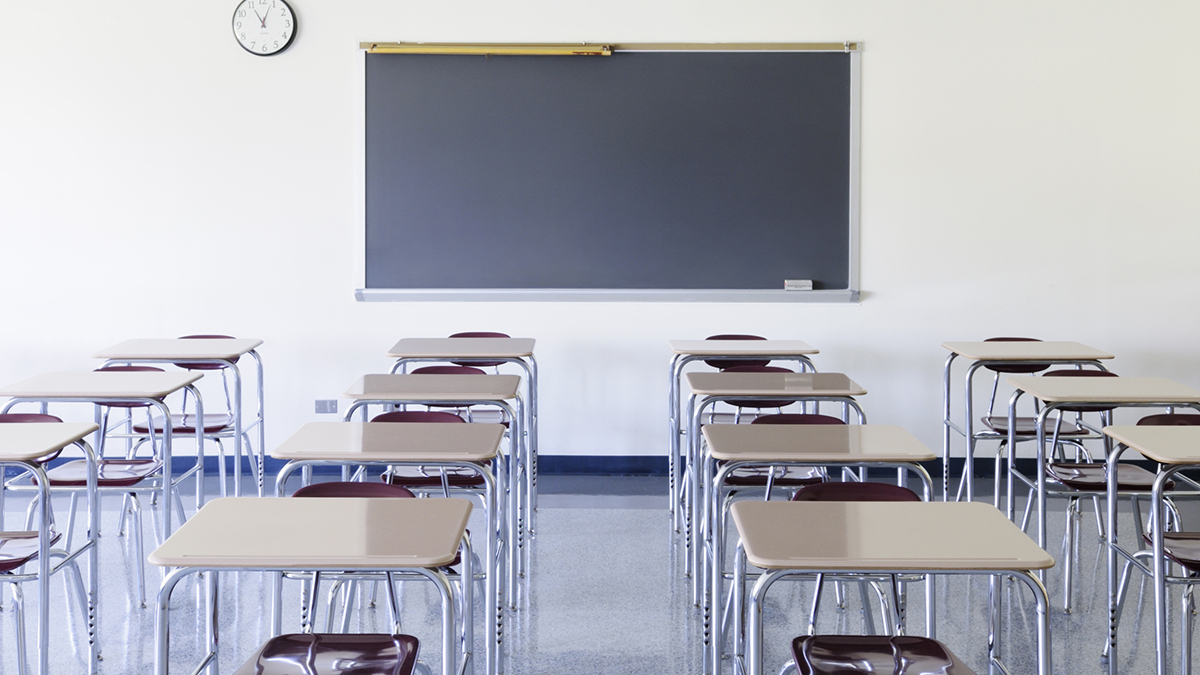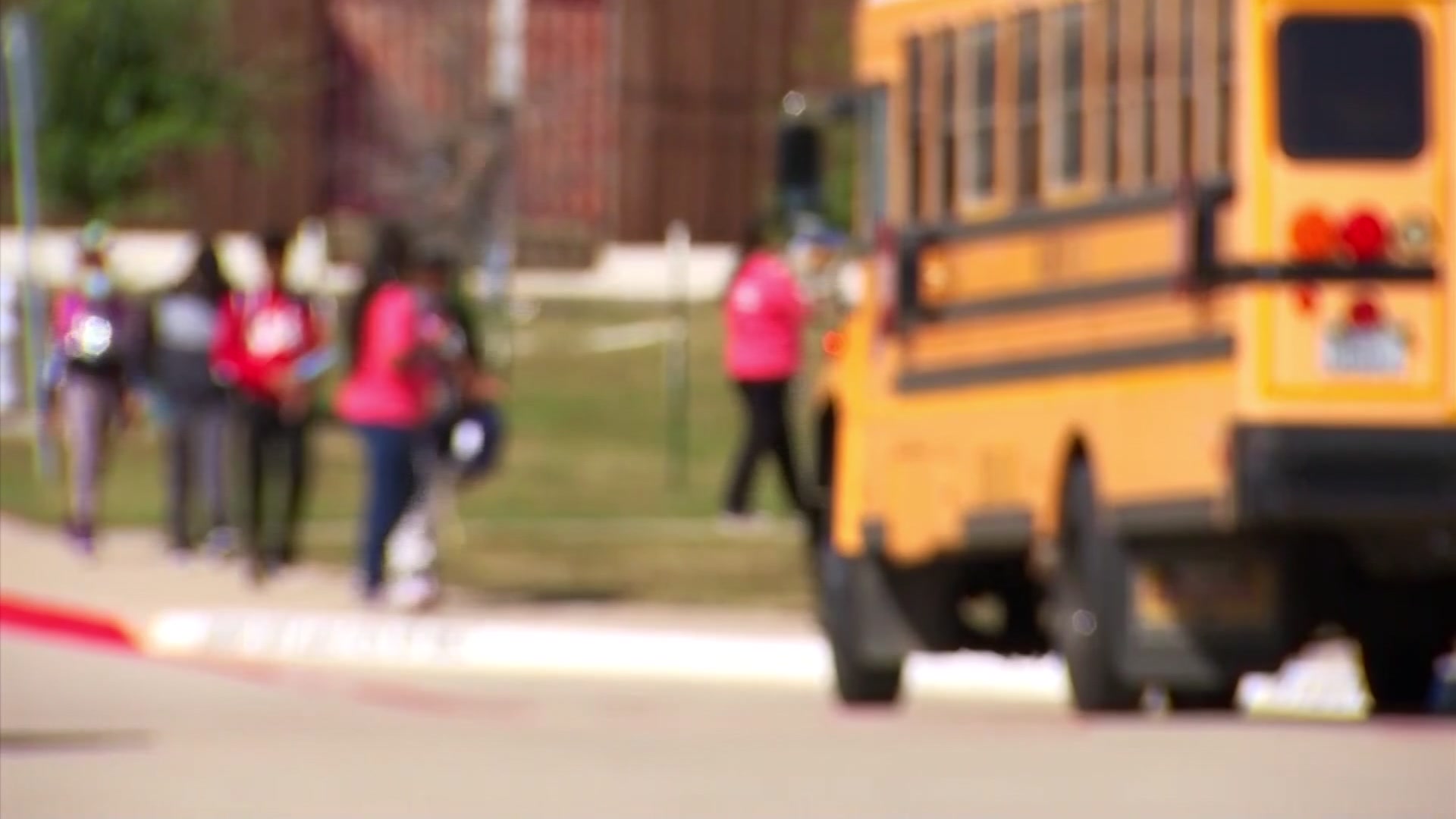After test results published Monday showed that Massachusetts students have lost ground, the state education commissioner announced Tuesday that the department will be taking a more "supportive" role with school districts.
"We as an organization need to decide ... are we willing to jump in and support our districts?" said Department of Elementary and Secondary Education (DESE) Jeffrey Riley.
DESE has historically seen its role as enforcing state and federal regulations, Riley said, but new goals for the current school year reflect a shift in the department's vision of itself.
Riley presented four objectives for the remainder of the 2022-2023 school year: providing support to accelerate student learning, building a diverse and culturally responsive workforce, cultivating safe and healthy learning environments, and aligning DESE supports to a shared academic vision of deeper learning.
Get Boston local news, weather forecasts, lifestyle and entertainment stories to your inbox. Sign up for NBC Boston’s newsletters.
"We've seen what the pandemic has done, we've seen the losses. Our primary focus has to be on accelerating student learning," he said at a Board of Elementary and Secondary Education meeting Tuesday.
In line with his vision of shifting the department's role in the system, Riley said he would like to continue to expand early literacy programs, after-school efforts, summer school and early college.
The department also plans to finalize a redesign of Individualized Educational Plans -- which support students with disabilities and English language learners -- as well as developing new curricula for English learners.
Riley also expressed support for grants for Acceleration Academies, early literacy tutoring, the Biggest Winner Math Challenge and after-school and summer programs.
The National Assessment of Educational Progress (NAEP) released standardized test outcomes Monday that show lower scores across grade levels and subject areas when compared to test results from 2019 and earlier. Still, Massachusetts students led among all other states in overall NAEP scores.
In the first NAEP test administration since the 2018-2019 school year, Massachusetts students received the highest numeric score of any state on two of the four assessments (fourth-grade reading and eighth-grade math) and the second highest score on the other two assessments (eighth-grade reading and fourth-grade math).
"Massachusetts once again leads the nation in overall NAEP scores, showing the strength of our education system, despite the challenges of the past few years," Gov. Charlie Baker said in a statement Monday.
Monday's test results affirm what Massachusetts Comprehensive Assessment System, or MCAS, scores showed last month, associate commissioner for the department's Center for District Support Rob Curtin said in a presentation to the board.
The MCAS showed mixed results compared with the 2021 scores. Math and science scores increased, while English language arts, or ELA, declined for the second year in a row; yet, compared to 2019 scores, "we have a ways to go", Curtin said.
In ELA on the MCAS, just 41% of third through eighth graders scored in the "meeting or exceeding expectations" range, a drop of 5 percentage points from 2021. DESE said that grades three through five showed sharper declines than grades six through eight, "indicating challenges in early literacy." Among 10th graders, 58% met or exceeded expectations, down 6 percentage points from 2021, the News Service reported last month.
"Globally and around the country we've seen academic losses brought on by the pandemic. Massachusetts is no exception," Riley said. "Though we remain the top performing state ... I think it's fair to say we have a lot of work ahead of us to remediate the learning loss that our students have experienced."
Despite Massachusetts' relative success in the NAEP exam, both tests show that pre-existing achievement gaps between students of different racial groups have persisted.
In grades three through eight Black students scored an average 28 points below their white peers in both 2019 and 2022 in math. Hispanic students scored an average 27 points below white students in 2019 and 29 points below in 2022. Asian students scored the highest across grade levels in 2019 and 2022, with third through eighth graders scoring an average 22 points higher than white students last year.
Curtin said these gaps are "our work moving forward."
Natasha Ushomirsky, Massachusetts state director of The Education Trust, told the News Service inequalities present in the state's education system before the pandemic were exacerbated by the disproportionate effect COVID-19 had on lower-income and communities of color.
"Massachusetts managed to hold on to our high overall rankings this year, but how meaningful is that when we're seeing scores that are lower than they've been in 20 years and we're seeing wide disparities in our education system," she said.
Executive director and founder of Boston-based education advocacy group Black Advocates for Educational Excellence, Edith Bazile, called Massachusetts' placement in NAEP results a "faux reality" for many students.
"When we separate the data it shows two different pictures," Bazile said. "Massachusetts has to stop this celebration about being first in the country because it hasn't addressed the two-track system that is leaving students behind."
At the board meeting Tuesday, Curtin, members of the board and Riley acknowledged this learning gap and identified it as an area for improvement.
Bazile said state representatives need to address racial inequity in schools by applying culturally responsive teaching and literacy research into the classroom, working directly with community members and hiring educators of color.
"The state has issued some strong guidelines on literacy and high quality special ed services, but they have not been adopted in all school districts," she said. "How do we move from having all this wonderful research to having these regulations in the classroom?"
Only 20% of Black students in third grade in Boston Public Schools read on grade level, Bazile said, compared to 30% before COVID-19.
"You can't blame everything on the pandemic. We live in a state where public education works for some and because of policies, procedures and placements, it doesn't work for others," she added.
To make and implement policy that reaches students in communities of color, Bazile said lawmakers need to listen to the students and families themselves. She said parents, caretakers and other community members should be allowed to go into schools and see how they are serving their children, then provide feedback.
"Let's hear stories from students and parents. The answer exists in the stories of those who have been left behind," she said. "Policymakers make decisions from an ivory tower about these communities even though they know nothing about them."
Bazile also told the News Service that having teachers of color in the classroom with students of color can help these children connect to culturally relevant educational material and feel more supported.
Building a diverse and culturally responsive workforce is one of Riley's goals for the 2022-2023 school year, and he said Tuesday that studies show students who interact with just one teacher of color before eighth grade are more likely to graduate.
"We need state leaders to not shy away from the hard data and hard conversation about the inequities in our system, and really shine a light on outcomes not just overall but for individual groups of students," Ushomirsky said.




